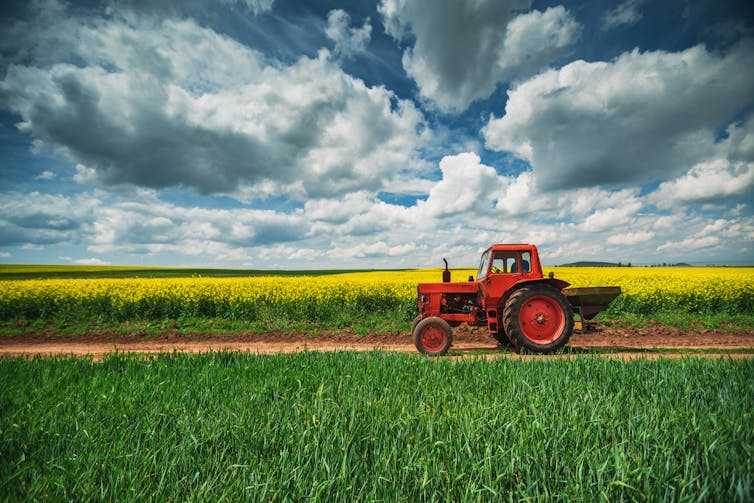Farm vehicles have long been considered an easy target for thieves because of poor security measures, such as universal keys that can be used to start any tractor and the failure to use immobilisers.
But security is now starting to be upgraded. Some tractors and quad bikes are now being made with a new type of chipped key to make them more secure; however, many vehicles still lag conspicuously behind the modern security standards, leaving farmers unprotected against theft.
Meanwhile, criminals are also embracing new technology. They are increasingly using e-scooters and e-bikes as they are faster than ordinary bikes and quieter than cars to scope out potential farms as targets. They also conduct their search for machinery to steal by trawling social media and online publications.
It is also increasingly common for criminals to use signal jammers to stop trackers working as thieves escape with a stolen quad bike.
Figures published by insurance company NFU Mutual show the extent of agricultural theft in the UK. The most recent report shows that, after significant increases in both 2018 and 2019, 2020 saw reductions in agricultural vehicle theft.
These figures may not indicate a long-term downward trend as the pandemic reduced the frequency and speed of both national and global transport networks that criminals depend on to move stolen goods.
And they may fall in line with a drop in recorded crime during the pandemic, where crime overall fell by 10% and theft by 20%.

Valentin Valkov/Shutterstock
Thieves steal quad bikes and all-terrain vehicles because of their high secondhand value (around £3,000-£4,000) and because they are easy to transport, but the latest target is expensive GPS systems that are often fitted to the top of tractors to improve accuracy and efficiency. Farmers use GPS systems to help them fertilise fields more accurately.
The ease with which GPS units can be concealed and transported has helped this form of crime remain viable during the pandemic.
Families left vulnerable
Machinery theft often results in significant interruptions to farming as well as financial losses, and sometimes theft is also accompanied by intimidation and violence.
Farmers and their families can also be left struggling with both the fear of crime and the experience of being a victim of crime leaving them feeling vulnerable and afraid of being alone in their own homes.
While some thieves operate locally and are fairly unsophisticated, most rural thieves routinely move across counties, countries and sometimes even continents.
Cross-border policing not working
Criminals are able to capitalise on the weaknesses in the way police forces don’t always work well across regional borders using their access to equipment and networks for the theft, transport and sale of machinery across large geographical areas.
Farmers are increasingly uncertain of how best to protect themselves without having to constantly invest in expensive security as a technological arms race takes place between them and criminals.
The new ways criminals are targeting rural communities mean that agricultural vehicle manufacturers must start to include modern security measures in their standard design for tractors and quad bikes as they do with cars, instead of leaving them to be purchased as expensive extras that farmers cannot afford.
In the meantime, my research suggests that using simple, cheap measures such as community WhatsApp groups police officers are able to quickly share information with farmers to help them improve security, warning them of any vulnerabilities, as well as helping farmers feel less isolated.
![]()
Kate Tudor does not work for, consult, own shares in or receive funding from any company or organisation that would benefit from this article, and has disclosed no relevant affiliations beyond their academic appointment.











